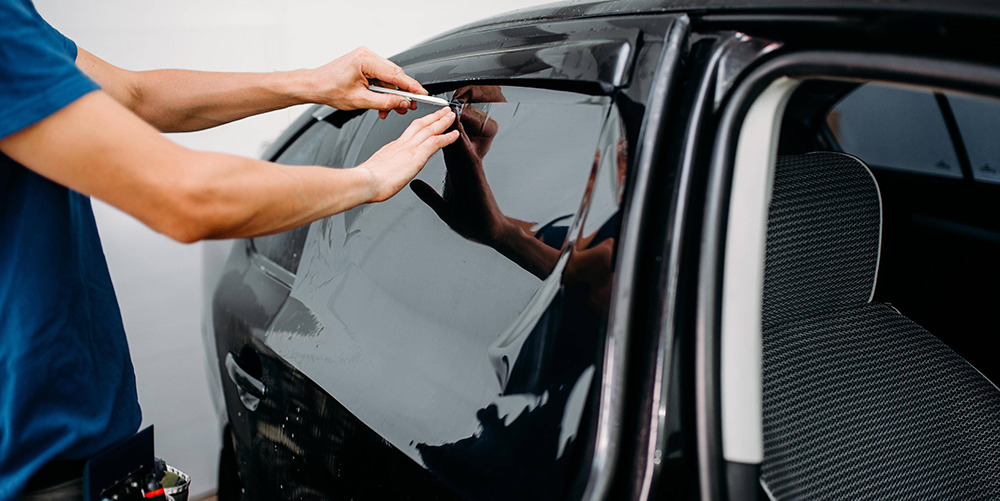Car window tinting is more than just a style statement. It’s a practical solution that offers a range of benefits, from UV protection to improved privacy. Whether you’re driving to work, heading out for a road trip, or simply parking in the sun, window tinting can significantly enhance your comfort. But what exactly does tinting do for your car, and why should you consider it?
In this article, we’ll dive into the world of car window tinting, exploring its advantages, types, legalities, and more. By the end, you’ll have all the information you need to decide if tinting is right for you and your vehicle.
What is Car Window Tinting?
Car window tinting is the process of applying a thin, transparent film to the glass surfaces of your vehicle’s windows. This film is designed to reduce glare, block harmful UV rays, and provide additional privacy. There are various shades of tint available, allowing you to customize the look and function of your car's windows.
Why Tint Your Car Windows?
So, why should you consider window tinting? There are plenty of reasons, and it’s not just about aesthetics. Think of window tinting as sunglasses for your car—it enhances your driving experience while protecting you from harmful elements. Here's what tinting can do:
- Protects Against UV Rays: Reducing exposure to harmful ultraviolet light.
- Keeps the Interior Cooler: Blocking heat, which makes your car more comfortable during hot weather.
- Increases Privacy: Prevents prying eyes from seeing inside.
- Enhances the Look of Your Car: Gives a sleek, polished appearance.
Types of Window Tints
When it comes to window tinting, there isn’t a one-size-fits-all approach. There are several types of tints, each with its benefits:
- Dyed Film: A basic, affordable option that offers privacy and some heat reduction.
- Metalized Film: Contains metallic particles that reflect heat and UV rays.
- Ceramic Film: Known for superior heat and UV blocking capabilities, without interfering with electronics.
- Carbon Film: Offers excellent UV protection and doesn’t fade over time.
UV Protection and Heat Reduction
Did you know that window tinting can block up to 99% of harmful UV rays? Prolonged exposure to UV rays can damage your skin and cause your car's interior to fade or crack. By tinting your windows, you’re not only protecting yourself but also preserving the condition of your car’s interior.
Additionally, tinting helps in reducing heat buildup inside the vehicle. It can lower the temperature by several degrees, making your car feel much cooler, especially on hot days.
Increased Privacy and Security
Imagine sitting at a traffic light and feeling like everyone can see into your car. Window tinting can give you the privacy you desire. It prevents strangers from peering into your vehicle, which is particularly useful if you often leave personal belongings in your car. Moreover, tinted windows can strengthen the glass, making it harder to break and thus improving security.
Does Tinting Affect Visibility?
A common concern is whether tinting reduces visibility, especially at night. While darker tints can make it harder to see in low-light conditions, most tints are designed to enhance visibility by reducing glare. As long as you choose an appropriate level of tint, you should not experience any significant reduction in visibility.
How to Choose the Right Tint?
Choosing the right window tint depends on several factors:
- Purpose: Are you more concerned about heat reduction or privacy?
- Budget: Some tints, like ceramic or carbon, are more expensive but offer better performance.
- Aesthetic Preferences: How dark do you want your tint to be?
It’s essential to balance these factors based on your needs.
Legal Considerations for Tinting
Before getting your windows tinted, it’s crucial to check your local laws. Different states and countries have specific regulations about how dark the tint can be, particularly on the front windows and windshield. Getting a tint that’s too dark could result in fines or needing to remove it altogether. Make sure to consult a professional who is aware of these regulations.
DIY vs Professional Tinting
While it’s tempting to save money by tinting your windows yourself, professional tinting is often worth the investment. Professionals have the experience and tools to ensure that the tint is applied evenly and without bubbles. Plus, many professional services offer warranties on their work, giving you peace of mind.
How to Maintain Your Tinted Windows?
Once your windows are tinted, they require minimal maintenance. Here are some tips:
- Avoid Ammonia-Based Cleaners: These can damage the tint.
- Use a Soft Cloth: To prevent scratching the film.
- Give it Time to Cure: Don’t roll down your windows for a few days after the tint is applied to allow it to set properly.
Is Tinting Worth the Investment?
When weighing the cost of window tinting, it’s essential to consider the long-term benefits. Tinting not only makes your car more comfortable and stylish but also protects your skin and the car's interior from UV damage from a trusted platform like thetintteam. Over time, these benefits can more than justify the initial investment.
Common Misconceptions About Tinting
There are several misconceptions about car window tinting. Some believe that it’s illegal everywhere, or that it will completely block out visibility. However, as we’ve discussed, most places allow tinting within certain limits, and the right level of tint should not impair your ability to see while driving.
Conclusion
Car window tinting is a smart choice for anyone looking to enhance their vehicle’s comfort, safety, and appearance. With so many benefits, from blocking UV rays to increasing privacy, it’s easy to see why tinting is becoming increasingly popular. Whether you opt for a simple dyed film or a more advanced ceramic option, tinting is an investment that pays off in the long run.





Comments